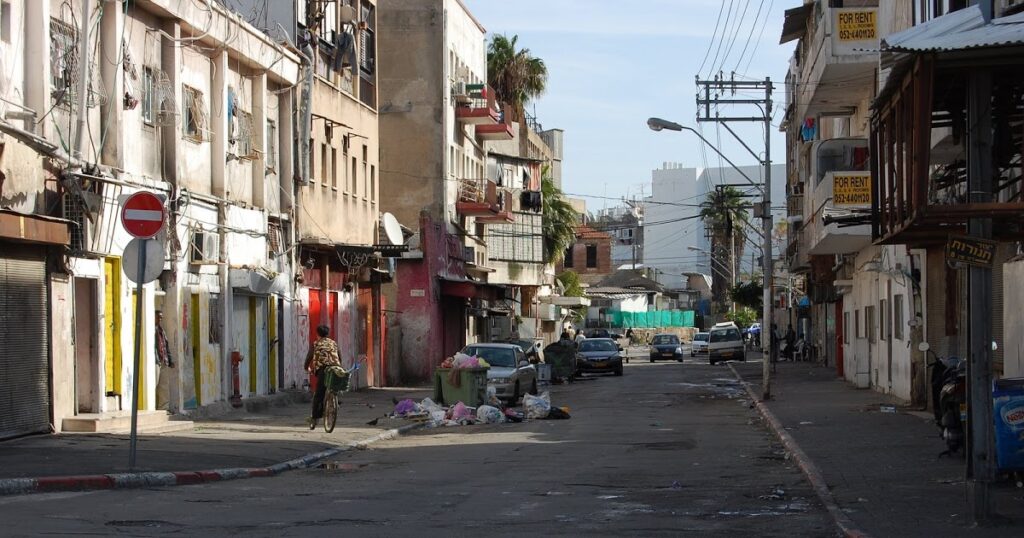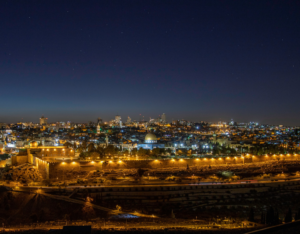Miriam’s story: Israeli mother escapes abortion twice through the power of hope
“She chose life simply because she had hope,” said Sandy Shoshani, national director of Be’ad Chaim, one of the few Messianic pro-life ministries in Israel.
Warmth layered her voice as she spoke of Miriam, now a thriving mother of three. Within the span of two pregnancies, Shoshani had watched Yeshua (the Hebrew name for “Jesus”) transform her from a terrified teenager narrowly escaping abortion into a confident mother standing unmoved amid a tide of pressure to abort her second pregnancy.
Miriam’s life began with anything but hope, however.
Born into a large, ultra-orthodox Jewish family in the most religious neighborhood in all of Jerusalem, she made the mistake of inheriting the dark skin of her Yemenite mother instead of the light skin of her Russian rabbi father. This visible mark imprisoned her in tortured limbo between the two Jewish sects of her world—the Ashkenazi (Eastern European) Jews on her father’s side, and the Sephardic (Mediterranean Sea area) Jews on her mother’s side whom the Ashkenazi looked down upon.
“From one side they were teaching me to behave nice and to love one another, and in one side they teach me a lot of racism, and if somebody’s not exactly like you, you better than everybody,” Miriam said, her soft, Hebrew accent emerging in a video testimony of her story. “I felt that was wrong.”
She attended the European schools, but as the only student with dark skin, she faced continual teasing and rejection—even her teachers mistreated her. Her mind scrambled to hold together the religious views she was exposed to within her insular society.
“They kept you busy doing the commandments they put on you, and if you will not do it, they terrified you that something will happen to you or your family or you’re going to hell,” she said. “It didn’t came together with the Torah that they teaching me. It’s make me very confused. I tried to be like them, but it didn’t work because of where I’m coming from, or where my mother coming from, or how I’m looking like.”
Abuse within her family completed her chaos. One day as a young teen she simply fled, one thought fixed in her mind—the social workers could help her. Cutting ties with her family, with religion, and with God, she began a new existence on the streets.
But just months before her 17th birthday, Miriam discovered she was pregnant. The father, an African refugee 15 years older than she, was in Israel illegally, and Miriam found herself in a precarious position.
Like many Israeli women, her first thought was to abort her baby. It would not be difficult—Israel broadly permits abortions until birth, even subsidizing many of them, for reasons including conception out of wedlock, danger to the mother’s mental health, or suspected deformities in the child. Tragically, an estimated one out of every five pregnancies in Israel ends in abortion, according to Shoshani.
But before Miriam could act on this plan, the man who years later would become her husband intervened.
“He was a Christian and he told me, ‘No, don’t do that,’ and you know, ‘God will help you,’ and everything,” Miriam said. “I didn’t do it, but still I was young and I didn’t have help.”
Her sisters, some of the only family members she still had contact with, pointed Miriam to the organization where one of them had found help for her pregnancy when her husband was incarcerated. Scared but decided, Miriam arrived on the doorstep of Be’ad Chaim.
She met a warm welcome from Shoshani, who reassured her that they would stand by her and support her for a year through their Operation Moses program. This meant that after giving birth, Miriam would receive a crib, stroller, and baby bathtub, as well as monthly vouchers to her local shop to buy diapers and any other supplies she would need. It also meant that a counselor would visit her throughout—she wouldn’t be on her own.
“They welcomed me, you know, open arms,” Miriam said.
After giving birth to her baby boy, Miriam took advantage of the program while scraping by in a one-room apartment in the poorest central bus station area of Tel Aviv. But Bible-based lectures kept drawing her back to Jerusalem. Her appetite for hope had been whetted ever since that first visit to Be’ad Chaim when Shoshani had explained that Yeshua lives and that God loved her. It was a message she had never heard before—Messianic Jews are few and far between in Israel, where only 0.69 percent of the population identify as evangelical Christians, according to the Joshua Project.

“They didn’t exactly talk about God, they talk about what He does and what He can do for you, and how do you should live right,” Miriam said. “It really talked to my heart. And it’s opened my heart again to think, ‘Alright, wait a second. Maybe I didn’t know God.’”
Miriam began reading several books on the New Testament, and that’s when she said everything in her life “got connected.”
“After a couple of times, I really accepted Jesus in my life,” she said. “You know, I could really put my head on Yeshua. I had a reconnection with God, and it was amazing.”
If the narrative ended here, Miriam would represent many women who pass through crisis pregnancy organizations—baby’s and mom’s lives saved, a happy ending for all. But no, as Shoshani said, “she’s got quite a story.”
(to be continued…)
